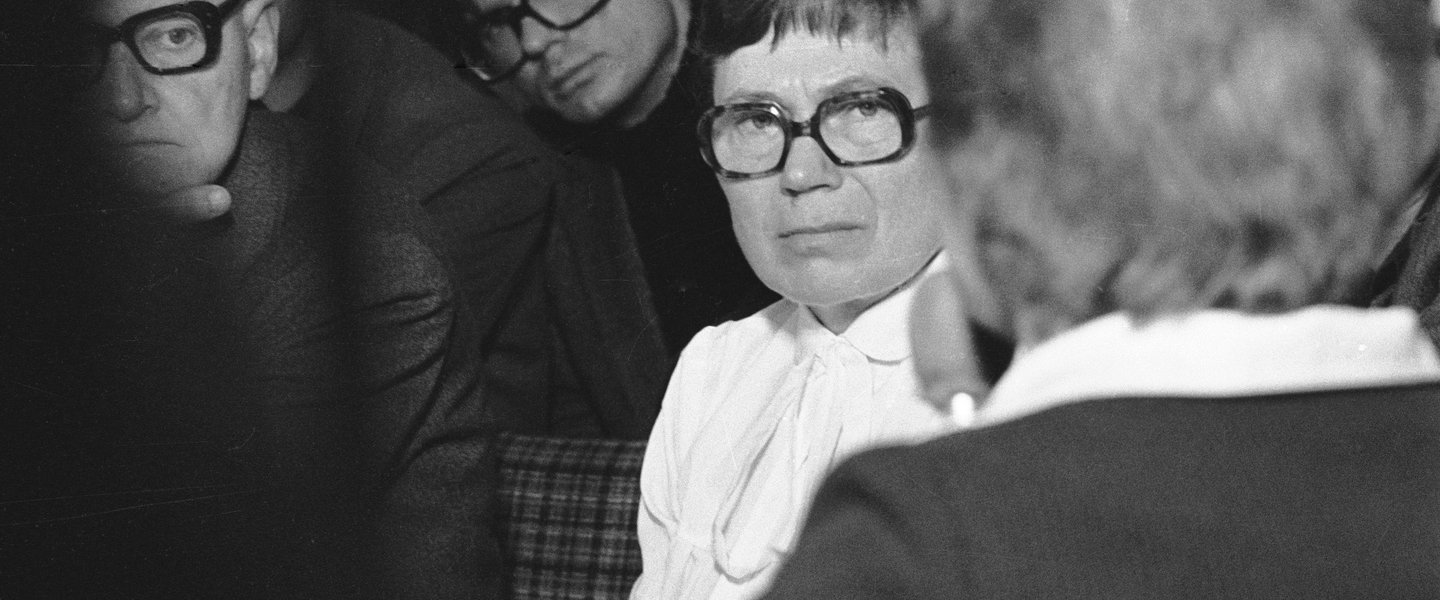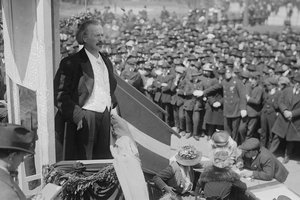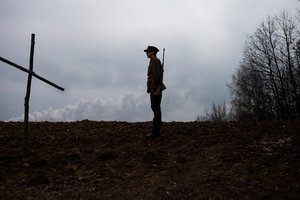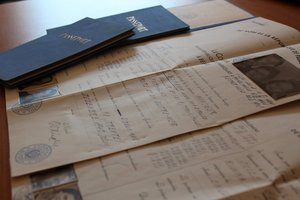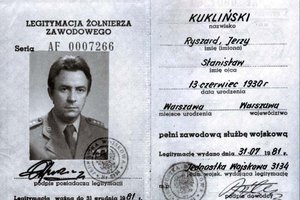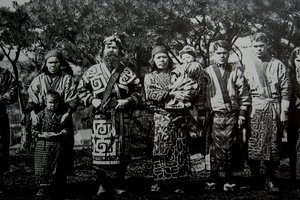Anna Walentynowicz, the spark that led to Solidarity
It was the firing of Anna Walentynowicz in 1980 that sparked the strike in Gdańsk, which resulted in the signing of the Gdańsk Agreements and which changed the fate of Poland forever. Out of the Gdańsk Agreement the ten-million strong independent trade union "Solidarność" was born.
Anna Walentynowicz’s role has been compared by some to that of Rosa Parks, who was the catalyst for the American civil rights movement, and that of Crystal Lee Sutton, an activist fired for her attempts to unionise workers at a textile company in North Carolina. She became the symbol of the 1980 strikes, which started off as a strike over bread and butter issues and which she successfully transformed into an even bigger deal, a nationwide solidarity strike over workers’ rights.
Born in 1929 in a small village in Poland’s eastern borderlands (today’s Ukraine), Anna Walentynowicz, née Lubczyk, was forced to discontinue her education after fourth grade and take up a job as a maid. Towards the end of the Second World War, she followed her employers, who moved westward, and eventually settled down in Gdańsk. As Walentynowicz said herself, in her youth she was "full of enthusiasm for the [new] Communist government", and she responded to the propaganda slogans encouraging young people to "build ships" by getting herself a job at the Lenin Shipyard, first as a welder and later as a crane operator.
 Michał Szlaga REPORTER EAST NEWS
She quickly gained model-worker status but as quickly did she become disillusioned by socialism and the Communist regime in Poland. Appalled by the corruption and attempts at suppressing free speech, she gave up her membership in the ZMP, Polish communist youth organisation subordinated to the Polish Workers’ Party, and began her quest for workers’ rights. When, in 1968, she demanded explanation for a case of money fraud, attempts were made to dismiss her for the first time.
Michał Szlaga REPORTER EAST NEWS
She quickly gained model-worker status but as quickly did she become disillusioned by socialism and the Communist regime in Poland. Appalled by the corruption and attempts at suppressing free speech, she gave up her membership in the ZMP, Polish communist youth organisation subordinated to the Polish Workers’ Party, and began her quest for workers’ rights. When, in 1968, she demanded explanation for a case of money fraud, attempts were made to dismiss her for the first time.
Walentynowicz got involved in workers’ protests violently supressed in the 1970s, and later became one of the key members of the Free Trade Unions of the Coast. Together they produced and distributed "Robotnik Wybrzeża" (Coastal Worker), an underground newspaper critical of the regime that she would hand out illegally to fellow workers at the shipyard.
In August 1980, at 51, after 30 years on the job and five months away from retirement, Walentynowicz got fired on false charges of petty theft and was forcibly removed from the shipyard. Her firing became a catalyst for numerous frustrations troubling workers in Poland at that time, such as food prices hikes and poor safety standards. On August 14, members of the Free Trade Unions of the Coast marched through the shipyard bearing smuggled hand-written posters and flyers calling for a strike and asking others to join in. Having learnt their lesson from the bloody 1970 protests, they did not take into the streets but remained inside the shipyard for a nonviolent sit-in-strike, and presented the management with five demands: Walentynowicz’s and Wałęsa’s reinstatement, an increase in pay, an increase in family allowances, no-reprisal guarantees and an erection of a monument to the 1970 victims.
The strike at the Lenin Shipyard set off a wave of protests across Poland and by September 1980, more than a million workers were on strike in support of the 21 demands of the Interfactory Strike Committee based in Gdańsk. "I was the drop that caused the cup of bitterness to overflow," Walentynowicz would say. The strike, which lasted 18 days, resulted not only in the rehiring of Anna Walentynowicz and Lech Wałęsa but, above all, in a historic agreement between Polish workers and the communist authorities that gave birth to the Independent Self-governing Labour Union "Solidarność", the first trade union in a Warsaw Pact country that was not state-controlled, and the world’s largest to date. Nine years after the Gdańsk Agreements, communism collapsed in Poland as well as in all of the Soviet bloc.
After the strike, Anna Walentynowicz became a member of the founding committee of "Solidarność" and stayed active for some time but later distanced herself from the union as personal and ideological conflicts within it deepened. She largely stayed away from politics after 1989. Walentynowicz died on April 10, 2010, in the tragic plane crash near Smolensk which killed Poland’s president and 90 other Polish officials en route to the seventieth anniversary of the Katyń massacre.
Anna Walentynowicz would be celebrating her 90th birthday in 2019, which is why the Sejm, lower house of Poland's parliament, has proclaimed 2019 as the year of Anna Walentynowicz.
Poland.pl
15.08.2019
